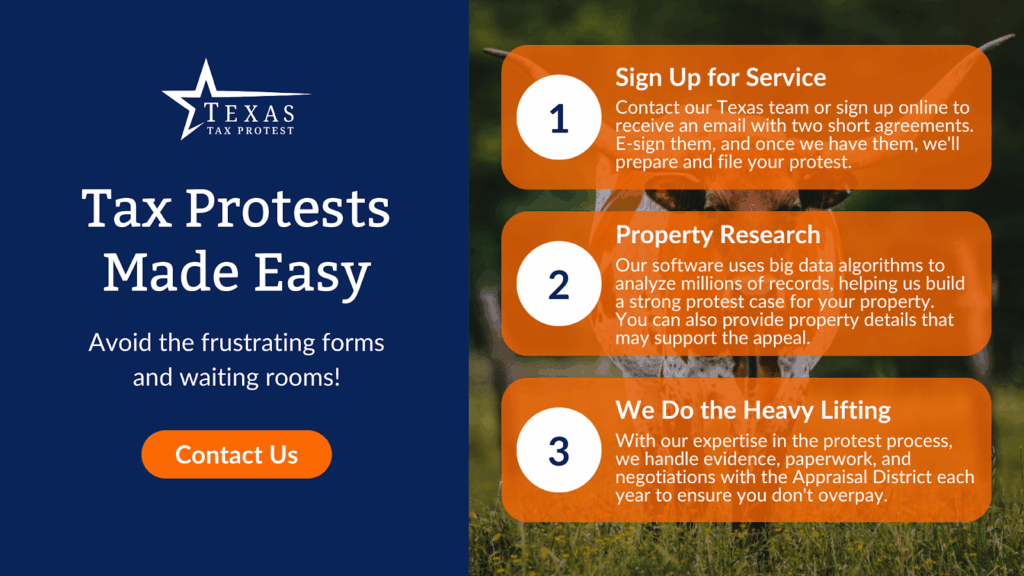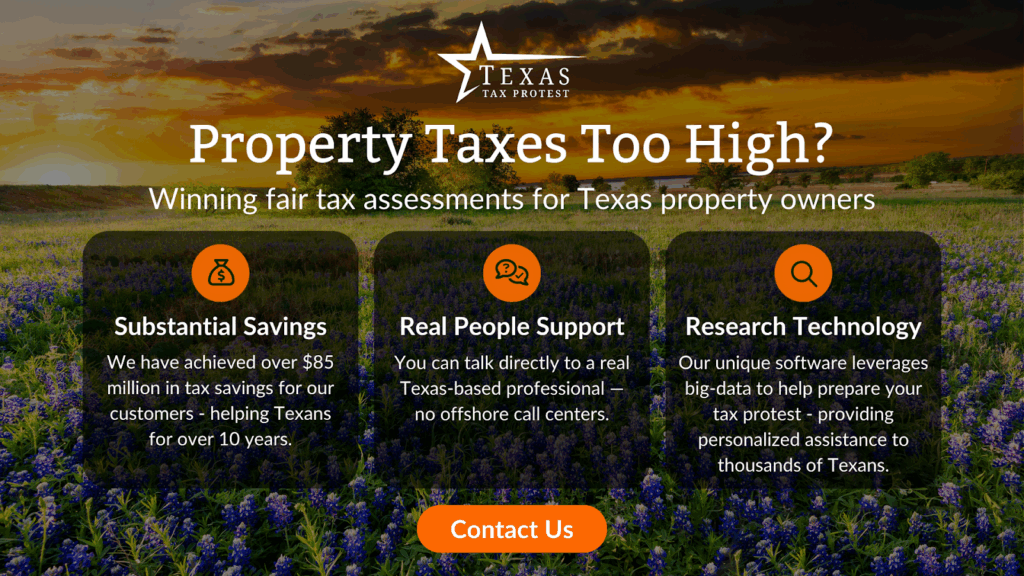Real Estate Vs Personal Property Tax: Key Differences Every Homeowner Should Know
November 4, 2025

Key Takeaways:
- Tax Categories Defined: Real estate and personal property are taxed differently based on permanence, ownership, and use.
- Texas-Specific Rules: Texas focuses personal property taxation on business assets, while household goods are generally exempt.
- Filing and Timing Matters: Real estate is automatically assessed, but personal property requires annual self-reporting by April 15 to avoid penalties.
Property taxes in Texas can be confusing, especially when it comes to knowing the difference between real estate tax and personal property tax. They’re not interchangeable, and mixing them up can lead to costly mistakes. Whether you’re a homeowner, a business owner, or both, understanding how these two forms of taxation work (and who they apply to) is essential. While real estate tax applies to land and buildings, personal property tax covers movable business assets, and the reporting, deadlines, and valuation methods for each are entirely different.
At Texas Tax Protest, we focus exclusively on helping Texas property owners challenge overvalued real estate assessments. We’ve handled thousands of protests across the state using a method grounded in local data, market conditions, and real appraisal techniques, including comp adjustments based on measurable differences, not just surface comparisons. We’re not a one-size-fits-all service; we’re here for property owners who want clarity and accuracy in the appraisal process.
In this piece, we’ll break down the key differences between real estate and personal property tax, explain how each is calculated in Texas, and help you understand what applies to your property.
What Is Real Estate Tax?
Real estate tax, often called property tax, is a tax levied on land and the structures that are permanently attached to it, such as homes, commercial buildings, and other improvements. This type of tax is assessed by local governments, most often at the county level, and it plays a major role in funding services like public schools, emergency services, infrastructure maintenance, and more.
Unlike personal property (which can be moved), real estate is fixed to a location. That immovability is what makes it subject to this kind of taxation.
Local appraisal districts determine the market value of a property each year. Then, taxing entities, like counties, cities, and school districts, apply their tax rates to that value to generate the total amount owed.
If your property’s value seems off, you don’t have to figure it out alone. Explore how our protest services help Texas homeowners get fair results without the stress. It only takes a few minutes to understand where you stand.

What Does Real Estate Tax Apply To?
Real estate tax applies to land and anything permanently built on or attached to that land. This includes:
- Single-family homes
- Condominiums
- Commercial buildings
- Rental properties
- Land with improvements (like fencing, driveways, or barns)
It doesn’t matter whether the property is owner-occupied or used as an investment, if it’s real property, it’s taxed based on its value. What qualifies as real property hinges on permanence. If the structure or improvement is intended to stay put, and not be moved, it generally falls under real estate tax.
Mobile homes, for example, can fall into either category depending on how they’re anchored and titled. If the mobile home is affixed to the land and considered part of the real property, it’s taxed as real estate. If not, it may be taxed as personal property instead.
How Real Estate Tax Is Calculated
Real estate tax is calculated based on the assessed market value of a property and the combined tax rates from all applicable taxing entities in a given area. Here’s a basic breakdown of the process:
Appraised Value
The local appraisal district estimates the property’s fair market value each year based on recent sales of comparable properties (called “comps”) and specific characteristics of the property. Adjustments are made to account for differences, such as square footage, age, condition, and improvements, between your property and the comps.
Assessed Value
In Texas, the assessed value is usually the same as the appraised value unless you qualify for certain exemptions (such as a homestead cap, which limits how much your value can increase year-over-year).
Tax Rate Application
The total tax rate is made up of rates from different local entities, school districts, counties, cities, and special districts. These rates are applied per $100 of assessed value.
Calculation Formula
Real Estate Tax = (Assessed Value/100) × Total Tax Rate
Who Pays Real Estate Tax And When?
In Texas, the property owner listed on January 1st of the tax year is responsible for paying real estate taxes, regardless of whether the property is sold later in the year. While buyers and sellers often agree to prorate property taxes at closing, the taxing authority holds the original owner accountable unless otherwise arranged.
Here’s how the timing works:
- Appraisal Notices: Typically sent in the spring (around April), these let property owners know the appraised value for that year. This is also when property owners can file protests if they disagree with the value.
- Tax Bills: Usually mailed out in October by the county tax office.
- Due Date: Property taxes are due by January 31st of the following year. Payments made after this date are considered delinquent and may incur penalties, interest, or legal action.
If the property has a mortgage, the lender often collects monthly escrow payments to cover property taxes and pays the bill on the owner’s behalf. Even in those cases, it’s still the homeowner’s responsibility to ensure the taxes are paid correctly and on time.
Every property is different, and sometimes a quick conversation can save you time and stress. Send us a message or give us a call so we can help you take the next step confidently.
What Is Personal Property Tax?
Personal property tax is a tax on movable assets, items that are not permanently attached to land or buildings. This includes things like machinery, equipment, vehicles, inventory, and other tangible goods. The key difference from real estate is mobility: if the item can be moved without altering land or structures, it typically falls under the category of personal property.
There are two primary types of personal property. Business personal property (BPP) includes equipment, furniture, tools, and inventory used in the operation of a business. Individual personal property refers to items owned by individuals, such as vehicles or boats, although taxation on these can vary by state. Not all personal property is taxable, and what’s subject to appraisal depends on local laws and how the property is used.

What Does Personal Property Tax Apply To?
Personal property tax applies to tangible, movable assets, most often in a business setting. In Texas, this typically includes:
- Office furniture and fixtures
- Computers, copiers, and other electronic equipment
- Machinery used in manufacturing or operations
- Business inventory held for sale
- Vehicles used for business purposes (if not already taxed through registration)
The tax doesn’t apply to real property or to most personal household goods that aren’t used to produce income. For example, your couch, TV, or personal laptop at home wouldn’t be taxed. However, if that same laptop is used exclusively for a business, it may be considered taxable personal property.
It’s also worth noting that leased equipment or assets used by a business, even if not owned by that business, can be taxable. The burden often falls on the user to report them in the annual rendition filed with the county appraisal district.
How Personal Property Tax Is Calculated
Calculating personal property tax in Texas follows a similar structure to real estate tax, but the process relies more heavily on what the business reports and how assets are categorized. Accuracy and detail matter, and missing or incorrect data can result in inflated assessments. Here’s how the calculation process generally works:
Annual Rendition Submission
Businesses must file a rendition with the county appraisal district each year, listing all taxable personal property as of January 1. This includes a description of each asset, its original purchase price, and the year it was acquired.
Valuation By The Appraisal District
The appraisal district uses the reported data to estimate current market value. Depreciation schedules are applied to account for asset age, usage, and condition, so a 5-year-old printer won’t be valued the same as a new one.
Depreciation Schedules
Standard depreciation tables help estimate how much value an asset has lost over time. These tables vary by asset type and assume typical wear and tear, but they don’t always reflect actual market resale value.
Application Of Local Tax Rates
Once a total market value is determined, it’s multiplied by the local taxing unit’s rate, the same tax rate used for real estate in the same area. The result is the personal property tax owed for the year.
Penalty For Failure To Render
If a business doesn’t submit a rendition, the appraisal district can assign values based on estimates. This often leads to higher valuations, and a 10% penalty may also be added to the final tax bill.
Who Pays Personal Property Tax And When?
In Texas, business owners are responsible for paying personal property tax on assets used for income-producing activities. This applies to both owned and leased equipment, as long as it’s in use as of January 1st of the tax year. Even if the asset is sold or moved later in the year, it may still be subject to taxation based on its status on that date.
Here’s how the timeline and responsibilities typically break down:
- Responsibility Falls on the Business Owner: If a business owns or uses taxable personal property on January 1, that business is liable for the tax, even if the asset is sold or discarded shortly afterward. Leased assets may also be taxed, depending on the lease terms and how the appraisal district categorizes them.
- Rendition Deadline: The annual Business Personal Property Rendition must be filed by April 15 each year. This report tells the appraisal district what assets the business owned or used on January 1. Extensions may be requested, but must be filed in advance.
- Tax Bills and Payment Deadline: Tax bills are generally sent out in October and are due by January 31 of the following year, the same as real estate taxes. Missing this deadline can result in penalties, interest, and possible collections actions from the county.
Real Estate Vs Personal Property Tax: Why The Difference Matters
Understanding the difference between real estate and personal property tax isn’t just about terminology, it directly affects how taxes are assessed, reported, and ultimately paid. Each type of property is subject to different rules, deadlines, and valuation methods, and knowing which category your assets fall into helps prevent compliance issues and overpayment. Here’s why the distinction matters:
Reporting Requirements Differ
Real estate is automatically assessed by the county appraisal district each year. Personal property, especially business assets, requires self-reporting through an annual rendition. Missing that deadline can lead to estimated, and often inflated, values.
Ownership Vs Use Matters
For real estate, ownership on January 1 determines who’s responsible for the tax bill. For personal property, it’s not just about ownership, how the asset is used (personal vs. business) also determines if it’s taxable.
Tax Planning And Protests
Real estate assessments can often be protested using comparable sales and adjusted data. With personal property, values are based more on depreciation schedules and reported costs, and overreporting can inflate your tax bill. The ability to track, report, and verify assets accurately is essential.
Stay informed on your property’s protest progress anytime. Sign in to view your account and stay up to date on any new developments. It’s the easiest way to keep everything organized.

Final Thoughts
Understanding the distinction between real estate and personal property tax is more than just a technical detail, it’s a core part of managing property ownership and business operations in Texas. Each tax type is governed by different rules, timelines, and reporting responsibilities, and missing those details can cost property owners both time and money.
At Texas Tax Protest, we focus on helping property owners navigate the appraisal system, identify overvaluations, and challenge inaccurate assessments through data-driven analysis, especially when it comes to real estate. Knowing how and why your property is taxed is the first step toward staying informed and in control.
Read More:
- How Local School Districts and Governments Impact Your Property Taxes
- Texas Property Tax Relief Bills: Key Updates And Potential Savings
- What Really Happens During a Property Tax Protest Hearing?
Frequently Asked Questions About Real Estate Vs Personal Property Tax
Is personal property tax deductible on my federal income taxes?
Business-related personal property taxes may be deductible as a business expense on your federal return. However, personal-use items typically don’t qualify.
How can I tell if something is real or personal property when it’s part of a business?
Ask whether the item is movable and whether it’s affixed permanently to the land or structure. If it can be removed without altering the property, it’s likely personal property.
Do all states handle personal property tax the same way as Texas?
No. Some states tax both individual and business personal property, while others, like Texas, focus mostly on business assets. A few states don’t levy personal property taxes at all.
Are leased items taxed as personal property in Texas?
Yes. Even if an item is leased and not owned by the business, it may still be taxed based on who has possession and use of the asset on January 1.
How are inventory and equipment valued differently for tax purposes?
Inventory is usually valued at market or retail value, while equipment is often depreciated over time based on age, condition, and type.
Can vehicles be taxed as both real and personal property?
No. Vehicles are always considered personal property, but how they’re taxed depends on whether they’re for personal use (registered) or used in business (reported separately).
Does personal property tax apply to short-term rentals like Airbnb properties?
The structure itself is taxed as real estate, but if the property is furnished and used as a business, items like appliances or furniture may be considered business personal property.
What happens if I don’t report personal property for my business?
The appraisal district may assign values based on estimates, which often leads to inflated assessments, and you may face a penalty of up to 10% of the tax due.
Is intellectual property ever taxed as personal property in Texas?
No. Only tangible personal property is taxed. Patents, copyrights, or digital assets like software code are not subject to property tax.
Can I protest personal property tax the same way I protest real estate tax?
Yes, but the approach is different. You’ll need documentation to show incorrect reporting, depreciation errors, or inappropriate valuations, not sales comps.











